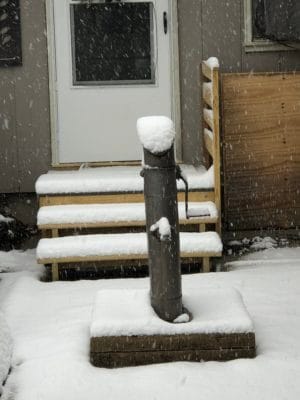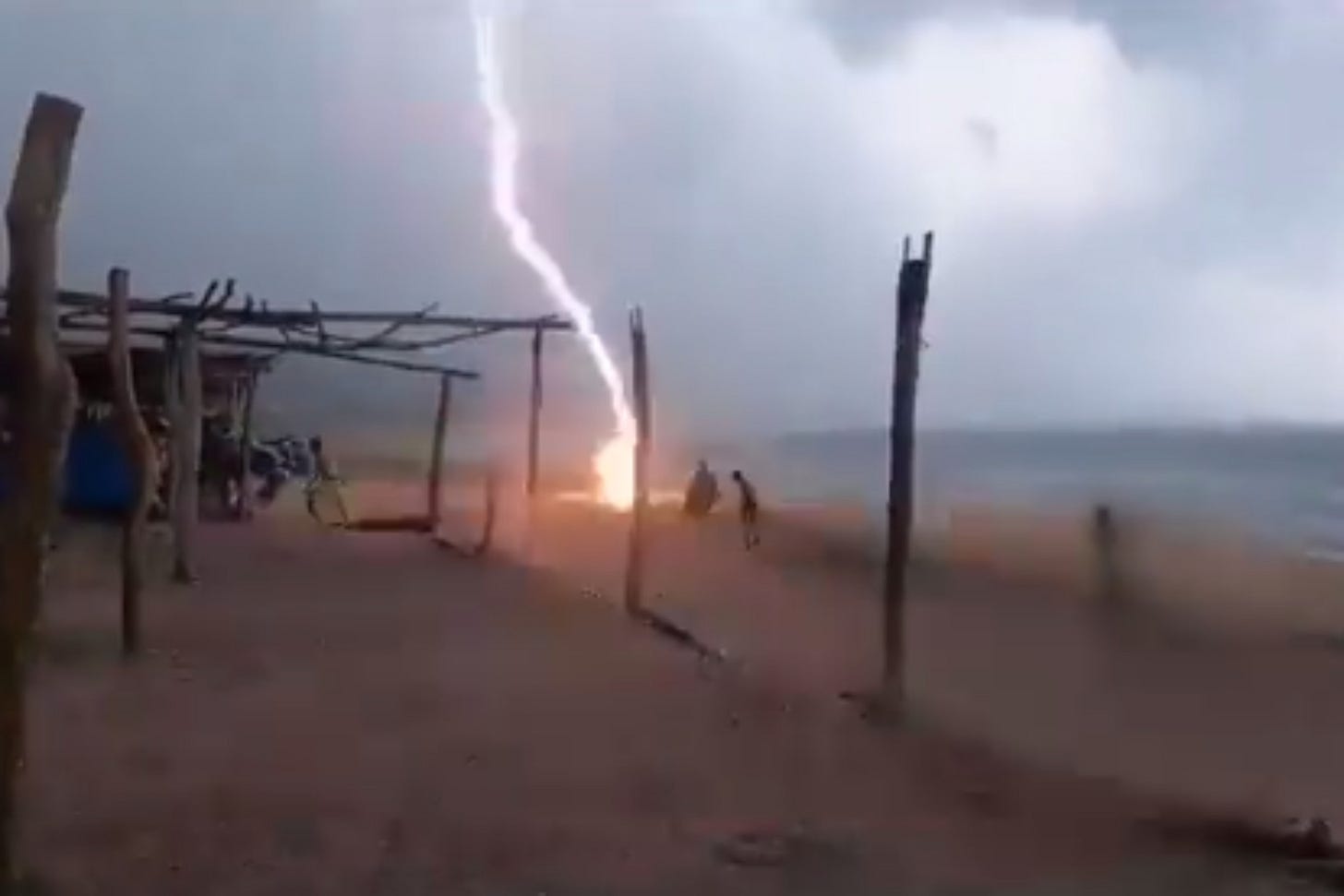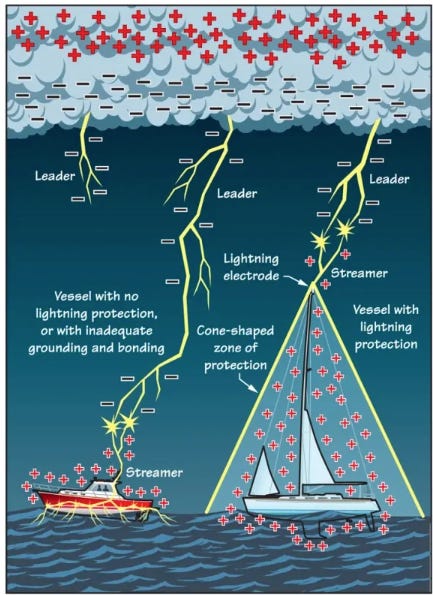Just Ask Mike: Lightning safety around water and boat docks
On average, 28 people in the United States die each year from lightning strikes
Welcome to my J.A.M. (Just Ask Mike) Session, a column where I answer your basic electrical questions. If you’re a newbie who’s never plugged in a shore power cord (or ask – what’s a shore power cord?), or wonder why your daughter’s hair dryer keeps tripping the circuit breaker, this column is for you. Send your questions to Mike Sokol at mike (at) noshockzone.org with the subject line – JAM. Today I discuss staying safe from lightning when around boat docks and water.
Dear Mike,
Your recent article about Electric Shock Drownings got me thinking about lightning danger around boat docks and in boats. Is there any way to be safe on a dock when lightning hits in the area? I’m also guessing that a lightning strike while you’re actually swimming in the water would be deadly. —Sandra P.
Dear Sandra,
The timing of your question is great. Spring will soon be happening—even though it’s currently 18 degrees F in Maryland and we just had 3 inches of snow on March 12th. And we’ve just set our clocks ahead (as in “spring forward”). So time marches on.
It will soon be time to prepare for the new camping season—which we’re all eager to do. While de-winterizing your camper is part of the prep, it’s also important to arm yourself with safety information. And learning how to stay safe in lightning storms is vital info.
Should I worry about lightning?
While you don’t want to get paranoid about lightning danger, you really need to be aware of it. By the time you hear thunder, it’s already happening near you, so immediate action is needed. And while lightning strikes can happen anywhere, some areas of the country are more prone to lightning strikes than others.
So for those of you who camp or reside in Florida, you should know it’s the lightning capital of the world. That means if you want to live in Florida you need to learn how to live with lightning. And that’s especially important when you’re camping, golfing, boating, or swimming.
Should I unplug my RV from shore power in a lightning storm?
If you don’t unplug from shore power and lightning hits in the area, your RV can sustain all kinds of electrical damage. And with the shortage of parts and trained technicians, you can easily lose the entire camping season before it’s repaired. Read my previous article on what happens to a vehicle during a lightning strike HERE.
What about water safety during a lightning storm?
The only safe thing you can do is get out of the water before the lightning hits. Never swim or go boating if there’s a possibility of lightning anywhere in the area.
My sound crew uses an iOS app called My Lightning Tracker whenever we’re working on outside events. And there’s a variety of similar lightning radar apps for both Android and iOS phones. These apps can automatically track your location and would be great while you’re camping, swimming, or boating.
Is it safe to be on a dock during a lightning strike?
I would say NO! Lightning hitting the water within a few thousand feet of a dock is likely to send a lot of high voltage through all the wet wood that you’re standing on. Injury or death is a real possibility.
So if you get any indication of lightning in the area, leave the dock and get to dry land immediately. Watch this terrifying video from the Weather Channel which shows a lightning strike on the water near a beach. Click the picture or HERE to watch the video. I would not have wanted to be anywhere in the area when that one hit!
What about lightning safety in a boat?
I don’t know a lot about it except that sailboats often have lightning rods on their masts to help send a lightning strike directly into the water rather than have it travel around the interior of your boat (which includes you). I’ll be studying this more in the future and will write about it once I’m more educated on the topic.
That’s All, Folks…!
Okay, enough about lightning safety. If you hear thunder you should look for lightning and seek shelter immediately.
Let’s play safe out there… Mike











I had a little different experience with an RV and thunderstorms this week.
I'm from Florida, so used to lightning. There, we unplug and in an hour or 2 it is gone, and reconnect. We are currently in Kentucky, and had storms come through off and on all day. You can try and plug in "in between" but then it starts up again, and time to unplug again. The end result was depleted batteries and the generator kicking on. This was OK at 3 PM, but not at 3 AM. So I was out at 1 AM during a short break plugged in, but watching the weather, and fortunately got enough charge to make it through the night when the T-storms were done.